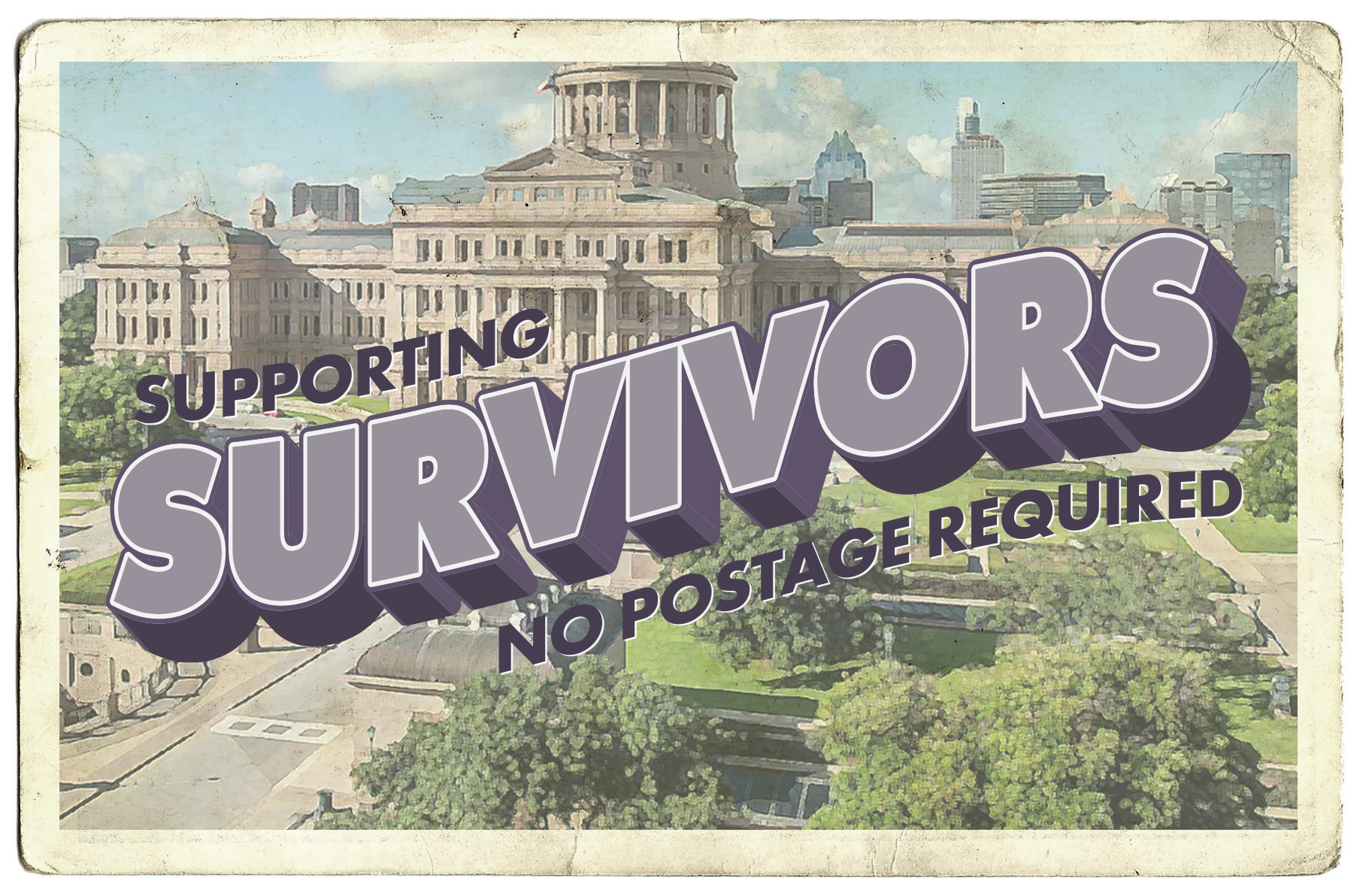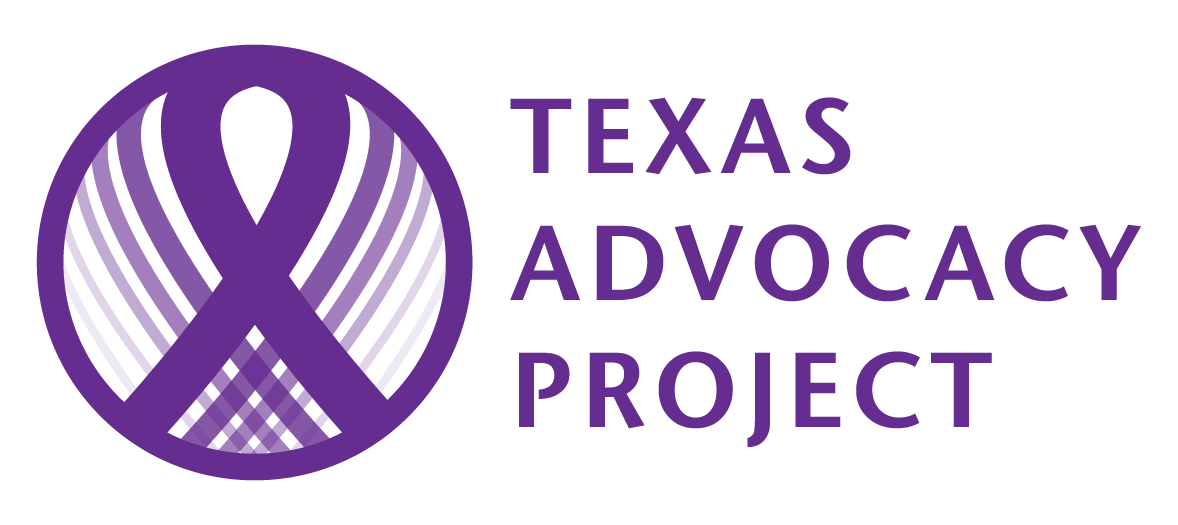.png)
Hope for the Holidays
Training Spotlight - Medical Legal Partnerships
Board Spotlight
Purple Postcard

Our Hope for the Holidays campaign is coming to an end in just two short weeks and, since launching, we have received an overwhelming response from our fellow community members. We are continuing to accept donations to fill the holiday wishlists of these deserving families. In addition to meeting our client families' wishlists, we also like to provide them with a warm holiday meal that they can enjoy safely with their family. Monetary donations of any amount help us achieve this for all 10 families. Wrapping supplies are also still needed and appreciated! We love having our clients and their children's gifts wrapped as if Santa and his elves did it themselves- just an extra step to help make their holiday truly magical.
To make a monetary donation or to help stock our wrapping supplies, please visit our website or email us at [email protected] for more information on how you can get involved.

Did you know, women who talk to their healthcare provider about the abuse they experience are 2.6 times more likely to exit the abusive relationship?
For this reason, healthcare providers are vital to many survivors’ safety. However, with their abounding schedules we can’t possibly add “domestic violence advocate” to their plates, right? Enter: Medical-Legal Partnerships, or MLP’s. MLP’s combine medical and legal services at a central point. Through the Medical-Legal Partnerships that Texas Advocacy Project has created, we are able to walk alongside survivors with their healthcare providers to increase the level of care they receive. TAP Board Member Dr. Kelly Thorstad and TAP CEO Heather Bellino recently collaborated together in writing What PPE is Needed for Domestic Violence?, posted by the Texas Medical Association blog, discussing the importance of MLP's and how they are crucial to ultimately ending the cycle of power-based abuse.
Domestic violence is a public health crisis with many individual and societal costs. It affects victims’ health both physically and mentally when when abuse is present and can also leave victims penniless due to financial abuse, therefore unable to access the care they need. Specific health issues that often occur within victims of domestic violence include a range of conditions such as fibromyalgia, depression, anxiety, IBS, eating disorders, PTSD, and more. On the macro level, the lifetime societal economic cost associated with medical services for DV-related injuries, lost productivity from paid work, criminal justice, and other costs, is about $3.6 trillion.
Here at TAP, we believe the best way to serve our survivors is to wrap them in services. This holistic view means that the exceptional and free legal services we provide, teamed with individualized care from a healthcare provider, can reduce stress and stress-related chronic conditions for survivors. TAP-assisted divorces can provide both financial support and much needed closure to survivors of abuse, and Protective Orders and safety planning can provide security and reduce the risk of injury, or even death.
Both legal and medical systems are vital to the health of our society, however they are even more beneficial if combined. If you are a healthcare provider and are interested in learning more about Medical-Legal Partnerships with the Texas Advocacy Project, please let us know. You can email [email protected] to start the conversation – we’d love to chat!

What initially brought you to Texas Advocacy Project, why did you want to serve on our board?
I got introduced to Texas Advocacy Project by Andrea Sloan [former Executive Director], who was a close friend of mine and someone who I had worked with around Texas Legislature and politics since around 1988. She was an exciting and passionate person to work with. When she went over to TAP, she was very proud of it, rightfully so, and when a board opening came up she thought of me. I was immediately drawn to the mission. I had a great deal of respect for the organization and also, as a lawyer myself, had a great deal of respect for the work they were doing day in and day out from the attorney standpoint. I knew that it had to be a great organization with a lot of heart and soul just on the merits of who they were, what they do, and what their mission was, because I’ve been in a courtroom and I’ve seen that in real life. You don’t do this kind of law unless you are in it 100%, so I had a high level of respect for everyone at TAP and knew that I wanted to do anything I could to support them.
What would you say has been the most rewarding part about serving on TAP’s board?
When I joined the Board, TAP as an organization was still in a growing phase, so it was exciting to be part of the group that helped get it to the next stage and expand to where it is now. During this time, you really felt like you were adding value, so it was just fun to watch it grow and be part of that process.
How long has Texas been home for you?
I’ve lived in Texas for most of my life. My parents moved from here to Oklahoma when I was in high school, so I lived there for a while and attended and graduated from Oklahoma State University. After that, I got a job in the Capitol, so I came right back to Texas. I have definitely moved around the state since coming back- mostly due to running different political campaigns. I was Kay Bailey Hutchison’s Campaign Manager when she was a US Senator and I also ran the victory committee for George Bush’s re-election as Governor, so I was in Dallas for a while then.
What is one thing that you learned, while serving on the board, that you didn’t know before or something that you’ve learned that has really impacted you?
Before joining the Board, I didn’t appreciate the extent to which TAP filled a large hole in the state of Texas. At the time, I thought there were probably more services similar to what TAP does statewide, but it became really clear that we really are a touchstone organization. Having served on this Board, I have learned a lot about the breadth and the need for TAP’s services specifically.
What are your hopes for TAP’s future? What direction do you see this organization going?
My hope is that we will continue to push TAP out into the hinterlands and continue to maximize our ability to reach places where people may not have access to healthcare or counsel. And also continue to grow our partnerships with entities that can help us touch the people that need us.
I also do a lot of education and lobbying, so I think a lot about how the aftermath of this pandemic is going to affect the mental health and emotional stability of people- from kids at school to kids learning from home, to marital situations. I think there’s going to be a lot of relearning needed of how to properly treat one another, and I think this could be an education role for TAP in the future. Some of these kids may have been exposed to a lot more domestic violence in the last 6 months than they have in the last 6 years. We may have a duty to be part of this education and I think we are poised to take a leadership role regarding this, whether it’s in public education or through a public health domain.
What is your favorite pastime? Where can we typically find you on a Saturday evening?
Cooking. I’m a big foodie and you can always catch me watching the Food Channel. If it’s nice outside I enjoy cooking out there. I’m a fairly big smoker, so smoking meats and fish. Making sauces, experimenting with different flavors, and probably one of my favorite things to cook is Spatchcock Chicken- marinated in lemon, soy, and honey with rosemary twigs on top- it’s the best chicken you’ll ever taste in your whole life. Also, spending time with my boys who are in their teenage years. We are always doing a lot of outdoor activities like fishing, and I also enjoy skeet shooting competitively. As a family, we have all slowed down a bit this year and taken the time to enjoy more of each other, and I’m really grateful for that.

Texas Council on Family Violence has launched their Purple Postcard campaign! This Purple Postcard is an easy and digital way to reach out to our legislators who make the critical decision about funding for family violence programs. Filling out a Purple Postcard, no matter where you reside in Texas, will let your state representatives and senators know that fully funding these life-saving services should be a top priority this legislative session and that we stand with survivors.
Their goal is to collect and deliver one card for every one of the 71,000 strong survivors, who sought services from family violence programs in the past year. Click the link below and take two minutes to fill yours out!





